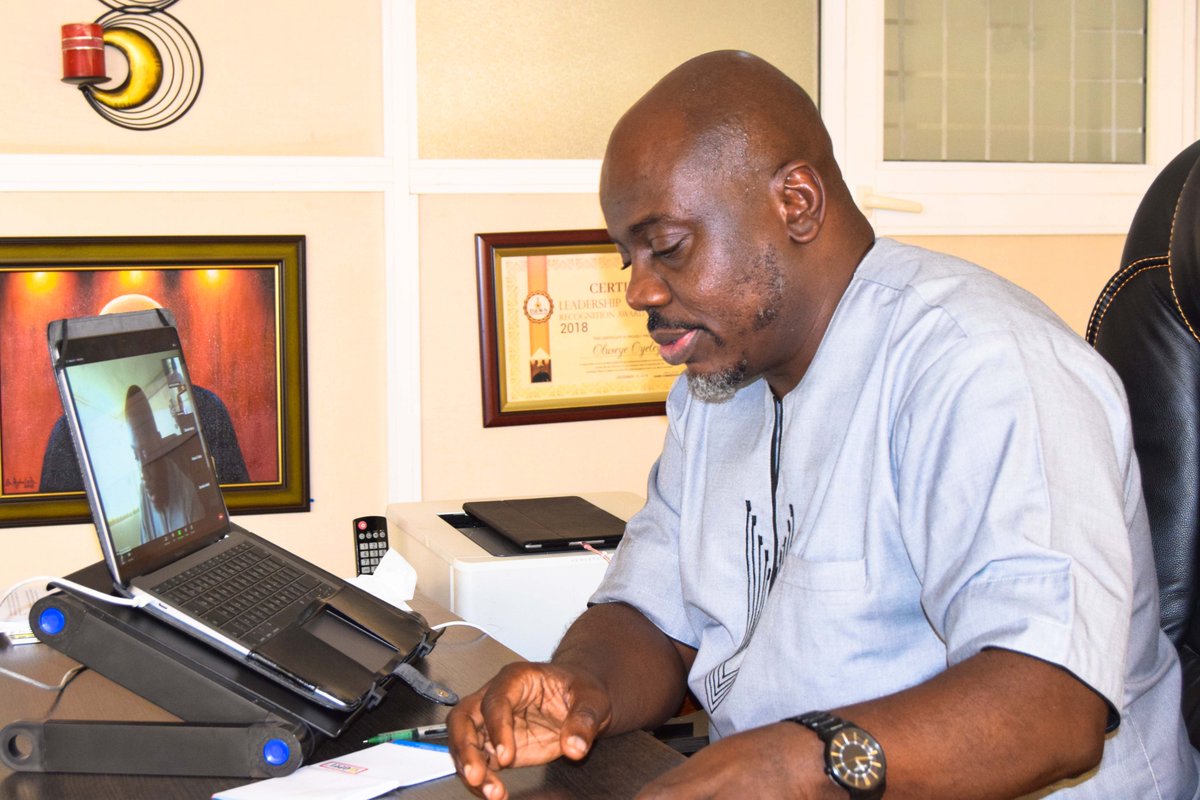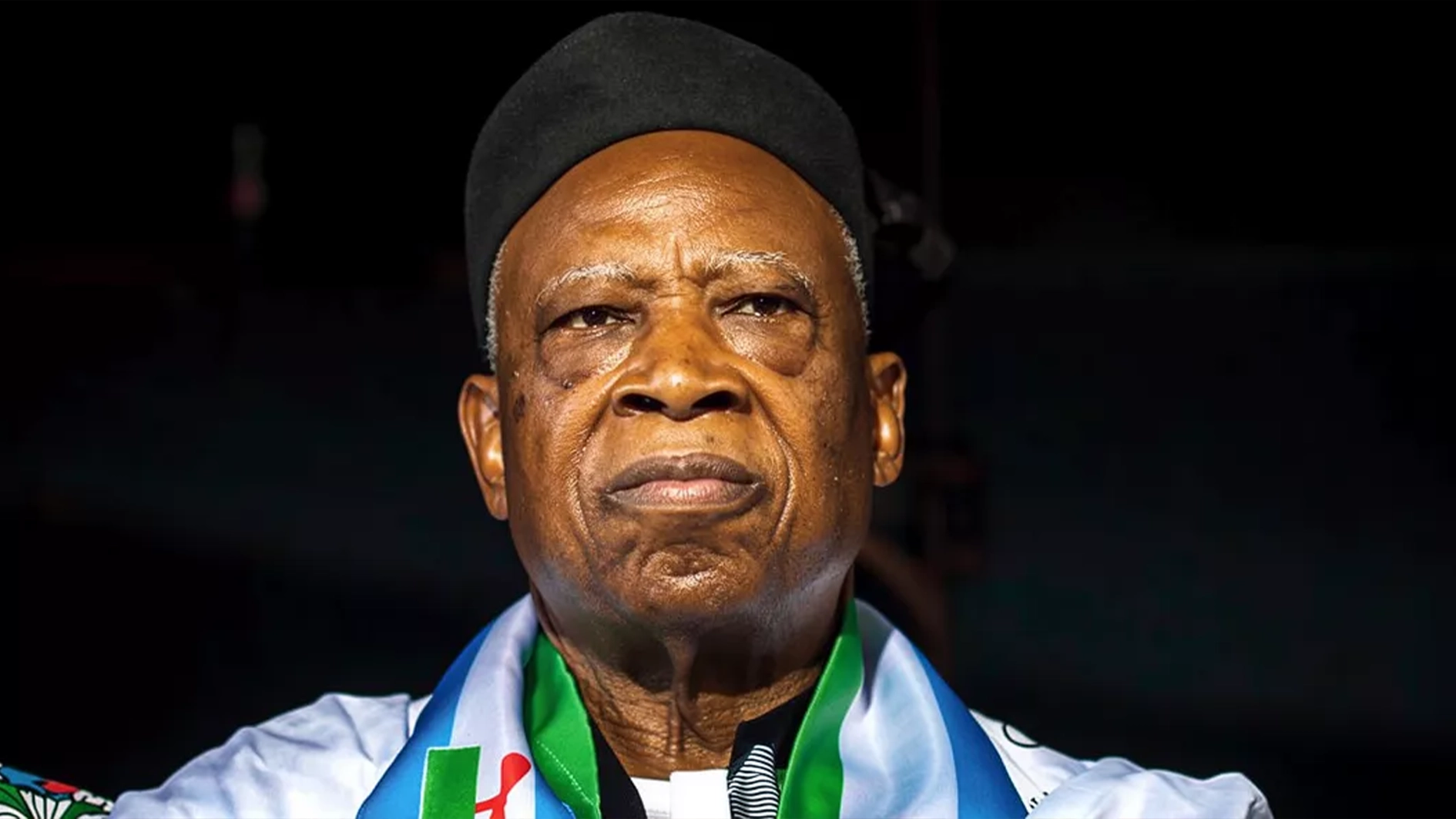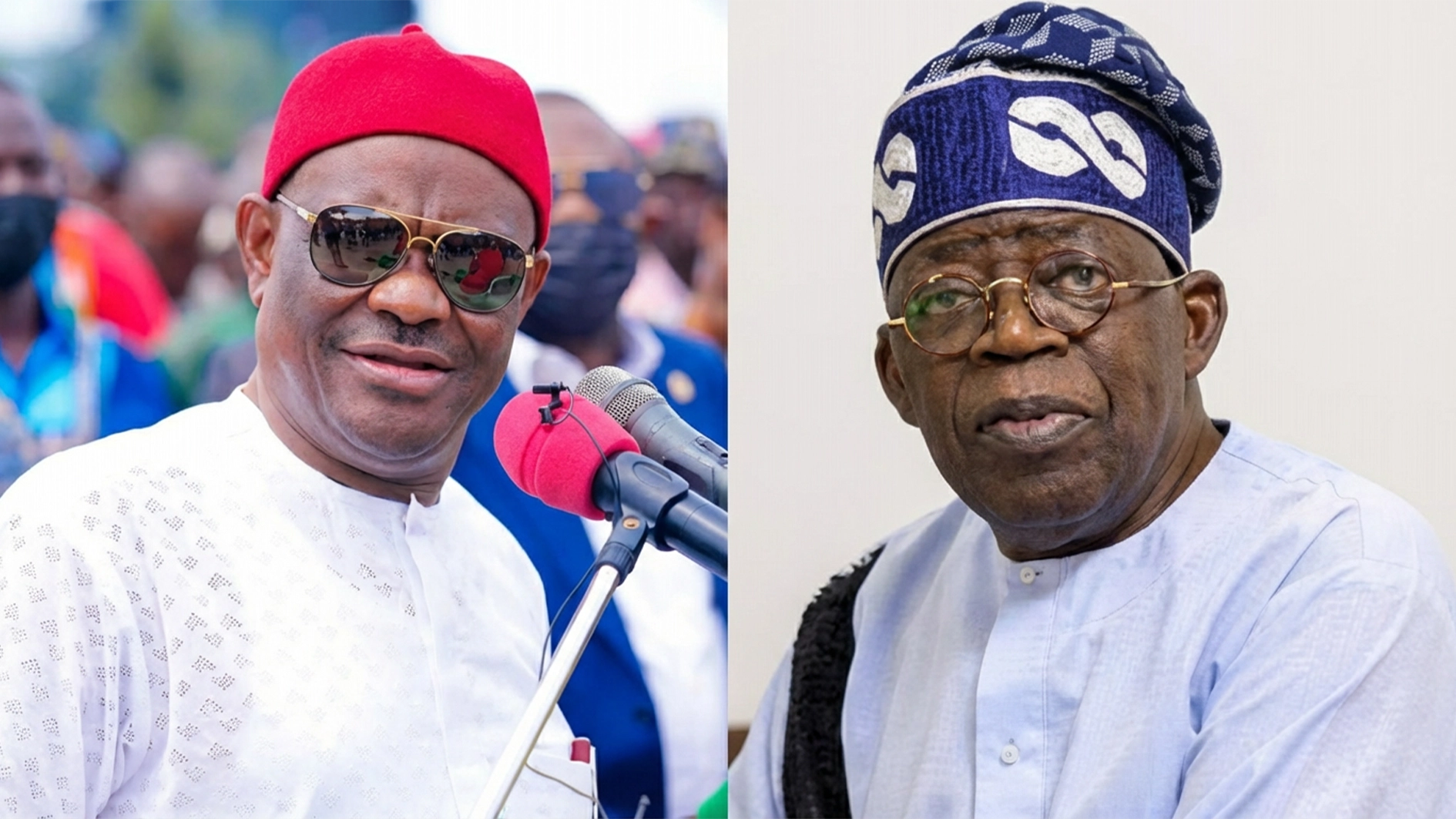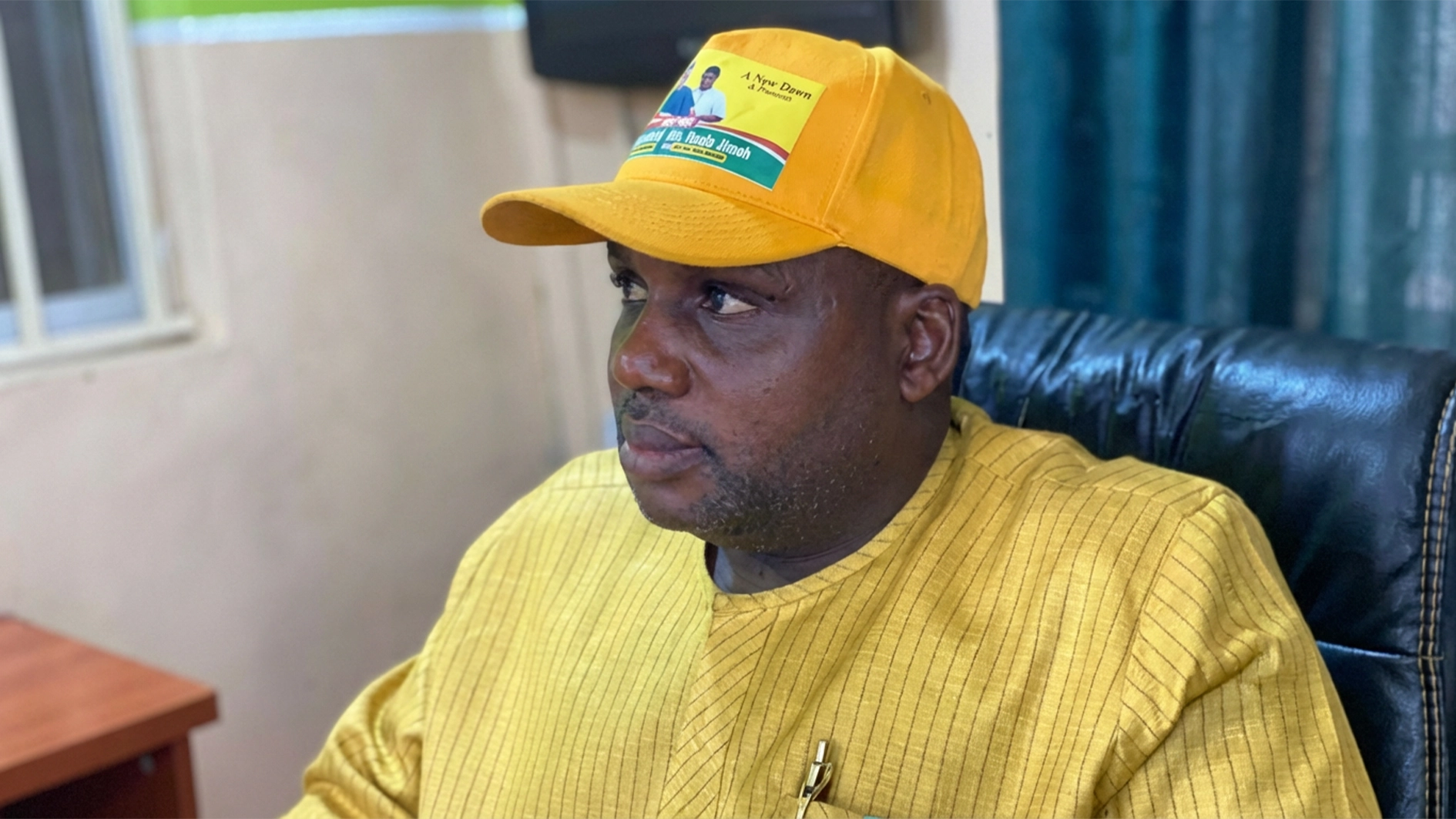
• Yoruba Ronu Urges Region’s Political Leaders To Answer Call For Integration
• ‘Railways Across Southwest Will Generate Over 10 million Jobs’
Since the beginning of the Fourth Republic in 1999, one cardinal agenda of the Southwest geopolitical zone is to forge a common front for the development and progress of the region. This is besides the persistent clamour for restructuring of the nation’s governance system, which the Yoruba have always championed over the years.
The two major socio-political/cultural organisations that have been at the forefront for the agenda are the Afenifere and Afenifere Renewal Group (ARG). But these have been projected under a coordinated body of professionals and experts, known as the Development Agenda for Western Nigeria (DAWN), popularly known as the DAWN Commission.
Through the years, the DAWN Commission, ably led by the incumbent Director General, Seye Oyeleye, has remained focused. And the collective efforts, it does appear, are set to yield results, especially with President Bola Ahmed Tinubu, who has always been one of the progressives, in the saddle.
On several occasions, governors of the six states of the region have had cause to gather in Oyo, Lagos and Ondo states with eagerness to put back on track the lost development drive of the region through what they termed ‘Regional Integration Cooperation’.
In 2012, the six governors of the zone gathered in Lagos to examine what went wrong with the region, with a view to restoring its opportunities and potentials.
A former governor of Oyo State, the late Abiola Ajumobi, then expressed concern as to why the Southwest could not reinvent itself, to repeat its previous achievements and strides in areas of economy, education and commerce.

It was then resolved that if the Western region was a pacesetter in infrastructure, quality of human capital and the like, it could recreate the noble pedigree, especially now and for the benefit of the upcoming generation?
Four critical aspects of the polity were identified as having been lost and or mismanaged by the present stakeholders in the Southwest. These are education, transportation, agriculture and security. In the last 24 years, the governors of the region as well as its various stakeholders have not been able to find a lasting solution or a way forward to address these issues.
But in recent times, the DAWN Commission has been reinvigorating efforts to bring the region up to speed for even development and economic restructuring.
The DAWN Commission has also been emphasizing that the development of the Southwest and the restructuring of Nigeria could only come through economic integration.
To the commission, with a sizable population, network of professionals and array of investment opportunities, the Yoruba race can achieve an economy of scale and provide the right environment for industry and professionalism to thrive.
It would be recalled that the incumbent governor of Ondo State, Arakunrin Rotimi Akeredolu, spearheaded the drive for creation of the new Southwest security outfit, Amotekun, which today provides necessary security in the region and, among other results, have curtailed the excesses of armed herdsmen, who for some years and especially in the last eight years, unleashed unprecedented terror across Yoruba land and on farmers and farmlands.
With much still needed to improve on the operation of the Amotekun Corps, the governors of the region still have a lot to do to support and empower Amotekun, while the debate on state police rages on.
MEANWHILE, one salient position, which the DAWN Commission is currently canvassing with conviction, is the imperative of a railway line that will connect the six states of the Southwest region.
As Oyeleye often puts it, “with a railway connecting the six states of Southwest and linking over 42 towns, sea and airports, the spiral effects would be massive economic and social transformation, not only of Yoruba land but Nigeria as a whole.”
Apart from Oyeleye’s conviction, other critical experts from the region have also expressed belief that if Nigeria could achieve 1000 kilometers of railway line under the immediate past administration of President Muhammadu Buhari in eight years, nothing should stop the six Southwest governors from building a functional railway transportation system across the zone in four years.
Sequel to a summit organised by DAWN in Ondo State in April, to discuss and chart a path forward towards the construction of railway lines across the Southwest, a follow up meeting was held recently in Ibadan, Oyo State, where a group of experts in transportation development further canvassed the possibility and viability to the governors, stakeholders and other partners in Southwest.
It was stressed that it is possible to achieve not less than 4000 kilometers of railroads across the region in four years. The experts further noted that the leaders of the region only need to be more proactive about the plan.
The experts included Commissioner designate of Transportation in Ogun State, Gbenga Dairo, Special Adviser to Ondo State governor on Transportation, Tobi Ogunleye; Director, Rail Transportation, Lagos Metropolitan Area Transport Authority (LAMATA), Olasunkanmi Okusaga Oyeleye, Executive Director, Centre of Sustainable Mobility and Access Development (CenMAD), Dr Kayode Opeifa; and Osun State Commissioner For Works and Transport, Omowaye Oluremi, among others.
Speaking during the Strategic Meeting on Southwest Regional Rail Infrastructure, held in Ibadan, Oyo State, they said it was possible and also doable for railway infrastructure to be built across the Southwest states for easy transportation of goods and people if the governors have the political will to achieve it.
In his remark, Opeifa, who is also a former Commissioner for Transportation in Lagos State, said the Southwest states needed to get serious about developing rail infrastructure if they hope to meet up with modern development.
Opeifa said the issue of developing railway infrastructure across the region is not about whether the states are ready or not. “It is not about the issue of funding and it must not be seen or treated as a political matter. It can be funded through the budget.”
He urged individual transport commissioners in various states to do more to convince their governors to buy into and be committed to the idea.
He added that if the project is eventually achieved, railway infrastructure development alone can cater to a considerable number of unemployment, while retirees could as well find something to manage their lives and further make use of their expertise.
Okusaga noted that the region needed to have clear objectives of how it wanted to achieve the project and its funding. He said a clear strategy must be designed to get the plan executed as soon as possible.
Ogunleye and Oluremi, on their part, expressed the readiness of their governors to support the project, saying, if some states in the region could afford to construct airports,l then nothing should stop the collective efforts of the governors to build railways.
Oyeleye, in his comment, noted that Nigeria’s population may rise with about 100 million in the next 10 years. “To address the challenges of transportation this might generate, railway development infrastructure is the solution,” he said.
The DAWN Commission DG added that stakeholders across the region and those in the Diaspora should also key into the plan.
Director of Operations, Nigeria Railway Corporation (NRC), Niyi Alli and Director, Centre for Multi-Modal Transport Studies, University of Lagos, Professor Iyiola Oni noted that it is unimaginable that up till now, Nigeria airports and sea ports are yet to be connected with railways.

According to the don, the idea of the much orchestrated restructuring could kick start with the Southwest Regional Rail Infrastructure. “The project would seriously impact positively on the economy of the region and Nigeria at large,” he said.
A communique issued after the Ibadan meeting reads in part: “In fulfillment of its mandate to foster regional cooperation and integration as a catalyst for achieving sustainable and accelerated development of Western Nigeria, DAWN Commission hosted a Strategic Meeting on Southwest Rail Infrastructure development, facilitated by the Lagos State government on October 4, 2023 in Ibadan.
“This strategic meeting is a follow-up to the Southwest Investment Promotions Agencies Conference (IPA 2.0) held April 2023 in Akure, Ondo state, where the proposed regional railway route, prepared by the keynote speaker, Mr Abiodun Otunola of Planet Projects Limited, was unveiled.
“The provisional route linked 44 cities and towns and was guided largely by the freight and industrial capacity of the Southwest region.
“The Strategic Meeting on Southwest Rail Infrastructure had in attendance high level public officials, senior civil servants and rail experts. The meeting noted that the current low linkages and current state of transportation networks sub-optimizes economic integration within the region, thus an integrated transportation network particularly the railway system will ease the movement of people, goods, and services while opening up the hinterlands.
“It agreed that improved mobility especially via railway will be crucial to coping with the impending population explosion of Nigeria. The United Nations stated in a press release in June that “among the ten largest countries worldwide, Nigeria is growing the most rapidly. Consequently, the population of Nigeria, currently the world’s 7th largest, is projected to surpass that of the United States and become the third largest country in the world shortly before 2050.”
The meeting also proposed that a strategic rail infrastructure will guarantee improved access to Lagos, thereby strengthening its position as the economic and financial capital of Nigeria and West Africa. The rail infrastructure will also improve linkages between Lagos and other Southwest States as an economic block, thereby ensuring mobility of capital and economic opportunities.
The meeting was also convinced that a region-wide railway infrastructure is unavoidable, un-deferrable, and feasible. Hundreds of companies operating within the region are said to incur about N150 billion annually, partly on their freight needs due to the state of road transport infrastructure.
In addition, with the development of the Lagos-Ibadan railway by the Federal Government and the planned extension of the line, the entire South West region can leverage on the on-going rail projects by the Federal Government in providing world-class rail services. The meeting also commended the recent amendment of the constitution, which transferred construction and management of railway transport from the exclusive to concurrent list, giving ample opportunity for the Southwest to develop a world class rail infrastructure, optimized for freight and passengers, as catalyst for economic growth and competitiveness.
The stakeholders also noted that prior to the constitution amendment, the Nigerian Railway Corporation had always been open to partnerships with sub-national governments and corporate entities with bankable plans for optimizing railway assets in the country.
It highlighted lessons to be learnt from recent railway projects in Nigeria and concluded that the proposed Southwest railway infrastructure is feasible, noting the political backing that regional integration projects have always received from the Governors and other stakeholders.
It decided, among other redacted resolutions, as follows: “DAWN Commission should create a technical working committee that comprises the Commissioner of Transport and a technical resource person from each state, including some other selected resource persons that will meet regularly to ensure achievement of the resolutions reached.
“The Southwest rail agenda should take into consideration the existing and planned rail infrastructure of the Federal Government of Nigeria, to expand the underpinning guideline of the provisional route beyond freight needs.
“The DAWN Commission should champion the commencement of a Project Development Plan.”
Speaking on the plan, Organising Secretary of Afenifere, Abagun Kole Omololu, said the agenda should be encouraged while Southwest governors and lawmakers must stand up to the task to achieve it.
According to him, “The old Western Region could achieve much because the Regional Constitution and arrangement allowed it. Each region could develop at their pace unlike now when the central government amassed a lot of developmental responsibilities. Our lawmakers and governors must wake up to the task of this regional cooperation agenda and development.”
Also speaking on the idea, Yoruba Ronu Leadership Forum, said the railway agenda proposal was a welcome idea.
President of the forum, Akin Malaolu, said, “The desire of some Southwest leaders to re-enact the past glory of the western region in the area of economic growth is a welcome development.
“The aim of this noble idea is to reduce the complexity to some sort of order by remodeling economic factors to bring productivity and efficiency through division of labour between the states and local government area and between the six states that made up the last whole of Western region namely, Lagos State, Ogun, Oyo, Ondo, Ekiti and Osun. Also in addition to these six States are Kogi and Kwara whose majority population are the Yoruba speaking Okun and many others.
“The key factors that enabled growth and happiness are labeled as the environmental quality of many economic and social activities like, a good environment should be a nuisance free environment, a housing opportunity environment, a healthful environment, is an employment opportunity environment, must be a recreational opportunity environment and as well as a modern amenity environment and an educational-opportunity environment. These few variables are quite important to help measure the preparedness of a State’s Government in their quest for proper and efficient economic integration between their States.”
He however expressed concern about the seriousness of the region’s political leadership, saying, “But the present situation on ground in all the individual States within the Southwest region and affiliated states like Kwara and Kogi are nothing but unpreparedness to the calls for economic integration.
“Not only are their local government areas largely neglected, they are undergoing what can be called deliberate emasculation from economic growth and activities at present.”
They are starved of the necessary funding that comes from the central government and from the looks of things, change will be a miracle if it comes.

“The bleak picture at present between all the Southwest States is their dependence on only Lagos State for most of their needs like happiness and employment.”
In other words, Lagos has become a notable economic convergence zone for export, imports, employment, recreation as well as for other options.
“The diffusion of economic activities into and from other States which should be the desire of any government is still like a candle in the wind.
” In conclusion, to achieve the desire for economic integration and development between the States in the Southwest, political leaders should engage the services of experts in the area of land use understanding and measurements to be able to understand what are on ground and to what economic significance they connotes to the common aspirations for an economic integration. Each State should come up with its area of strength and a division of labour can therefore be put forward to commence their desires.”
Malaolu added that a railway line across Southwest zone alone would generate over 10 million jobs and can as well discourage the idea of our youths’ desperation to seek greener pastures in foreign lands.
Leader of ARG, Wale Oshun on his part said the regional cooperation agenda was good and that it would set the path to a seamless restructuring of Nigeria.
He also noted that what the Yoruba states needed is actually the way to return to its golden era.
Oshun emphasised other economic viabilities of the project if achieved. For instance, the former Ogun lawmaker said it would boost the agriculture industry where farmers can easily move their goods, it will boost the housing industry in other states of the region and consequently reduce population concentration in Lagos and other urban centers.
He also noted that it would attract other investors and as well develop commerce and trade with other spiral effects.






